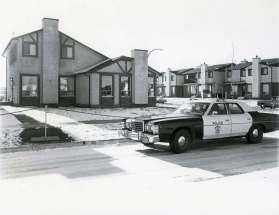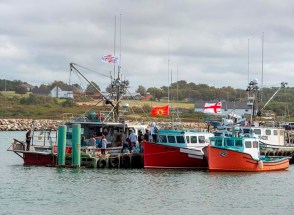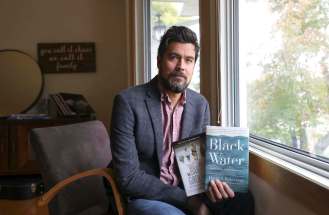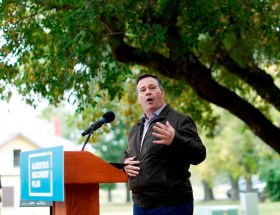Pallister pushes for health-care funds during indefinite Ottawa trip
Read this article for free:
or
Already have an account? Log in here »
To continue reading, please subscribe:
Monthly Digital Subscription
$0 for the first 4 weeks*
- Enjoy unlimited reading on winnipegfreepress.com
- Read the E-Edition, our digital replica newspaper
- Access News Break, our award-winning app
- Play interactive puzzles
*No charge for 4 weeks then price increases to the regular rate of $19.00 plus GST every four weeks. Offer available to new and qualified returning subscribers only. Cancel any time.
Monthly Digital Subscription
$4.75/week*
- Enjoy unlimited reading on winnipegfreepress.com
- Read the E-Edition, our digital replica newspaper
- Access News Break, our award-winning app
- Play interactive puzzles
*Billed as $19 plus GST every four weeks. Cancel any time.
To continue reading, please subscribe:
Add Free Press access to your Brandon Sun subscription for only an additional
$1 for the first 4 weeks*
*Your next subscription payment will increase by $1.00 and you will be charged $16.99 plus GST for four weeks. After four weeks, your payment will increase to $23.99 plus GST every four weeks.
Read unlimited articles for free today:
or
Already have an account? Log in here »
Hey there, time traveller!
This article was published 21/09/2020 (1905 days ago), so information in it may no longer be current.
OTTAWA — Premier Brian Pallister arrived in Ottawa last week, in an effort to solidify more generous health-care funding for Manitobans and to meet face-to-face with Prime Minister Justin Trudeau to make his case.
Six days into a trip with no set departure, the Manitoba premier has yet to accomplish either of those goals, with Trudeau’s staff switching to a video chat Monday, as COVID-19 spreads on Parliament Hill.
.jpg?w=1000)
The premier insists his visit will bear fruit for the province.
“Discussions are helpful, even when we disagree,” Pallister told the Free Press in a sit-down interview, moments after his teleconference with Trudeau.
“I’m not sure we’re going to agree on health-care funding.”
The premier arrived in the capital Sept. 15, and hasn’t yet booked a return flight to Winnipeg. Pallister and his team spent a day in isolation after meeting Sept. 18 with Quebec Premier François Legault, who himself had met four days prior with Conservative Leader Erin O’Toole, who tested positive for COVID-19 at the end of last week.
With the City of Ottawa declaring an official second wave of the novel coronavirus, Trudeau’s staff switched a Monday sitdown with Pallister to a teleconference call a few hours in advance.
“We were planning on meeting in person but agreed not to, out of caution,” the premier said in an interview at a downtown Ottawa office building.
“This is not a patchwork solution that we’re after; premiers are unanimous. We’re not going to solve this with attention-seeking investments.”
– Brian Pallister
On Sept. 18, Pallister joined Legault, Ontario Premier Doug Ford and Alberta Premier Jason Kenney in-person, to demand on behalf of all 13 premiers a more generous health-care transfer.
They want the federal government to pay $70 billion for health care annually, or 35 per cent of the cost. Ottawa currently pays $42 billion, which is about 22 per cent. The provinces spend $188 billion a year on health care.
Pallister has pushed for more health dollars since 2016, when the Liberals chose to maintain a Harper-era cap on rising health expenditures.
The premier said Monday he plans to seek unanimous support in the Manitoba legislature from all parties to formally ask for more health funding — a move he’d like other provinces to replicate.
Although the current health accord is locked into place until 2022, Pallister feels the provinces have leverage to demand more money, because more of his fellow premiers now lean conservative during a minority Liberal mandate.

The Trudeau government won over reluctant provinces in 2016, by cutting side deals with sympathetic Liberal premiers, throwing in funding for mental health and home care.
“This is not a patchwork solution that we’re after; premiers are unanimous,” Pallister said. “We’re not going to solve this with attention-seeking investments.”
He also defended the province’s own spending on health care, after Manitoba NDP Leader Wab Kinew released a document showing the PCs ordered health authorities to restrict their expenditures to a cap half of Ottawa’s restriction on health-care funds.
The document, obtained by a freedom of information request, shows health authorities were ordered to only spend 3.1 per cent more in the 2018-19 fiscal year than what they’d spent two years prior.
The cap Ottawa set is a three per cent rise per year, not 3.1 per cent for two years.
Pallister said the province is still spending more health care, and outcomes such as wait times matter more than budget lines. “Throwing additional money at a problem is a simplistic and silly gauge, frankly, for how you get results,” he said.
“Throwing additional money at a problem is a simplistic and silly gauge, frankly, for how you get results.”
– Brian Pallister
On Wednesday, the Trudeau government will outline its new priorities in a throne speech, which is expected to include costly pledges such as a pharmacare or child-care plan.
That’s why the premiers are pushing to instead boost transfers for general health expenses and infrastructure.
Pallister also asked Trudeau to include the reduction of interprovincial trade barriers among his key policy planks, given a mix of regulations between provinces is still driving up consumer prices.
“It’s gotta be in the throne speech. Because Manitoba’s been leading the fight on this, and I just think the time has come for us to just support each other in this country,” Pallister said.
The premier said he had a productive chat Monday with Infrastructure Minister Catherine McKenna on issues of transit funding and flood-prevention channel construction. That chat also occurred through a video conference.
Meanwhile, premiers were tentatively scheduled to meet at the end of this week in Quebec City, but the plans are now to proceed virtually.
On Monday, Kinew questioned why the premier didn’t just stay home. Though elected officials are exempt from orders to self-isolate when returning to Manitoba from other provinces, Kinew said the premier ought to do so anyway.
“I think Mr. Pallister should hold himself to the same standard, and model the kind of behaviour that it’s going to take to beat the pandemic,” he said.
Pallister argued the serious need for health-care funding merited the flight, and he listens to Manitoba’s chief provincial public health officer.
— with files from Larry Kusch
dylan.robertson@freepress.mb.ca





